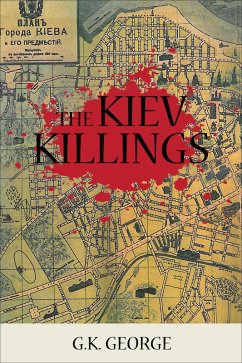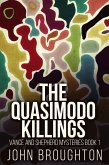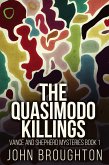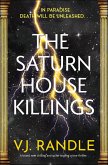Two Russian police detectives work hard to solve a daunting murder case in this historical thriller set during the Kiev pogrom of 1881. This is the sequel to To Kill a Tsar. Another thrilling adventure of eccentric Inspector Vasiliev, who this time takes the readers to Kiev, a city gripped in the horror of the 1881 pogroms against the Jews. "In this second, marvelous installment of their adventures, Alfred Rieber takes the remarkable Russian detective duo of Vasiliev and Serov to Kiev, a city gripped in the horror of the 1881 pogroms against the Jews. There they struggle to solve a murder that is shrouded in the fog of ethnic violence, government corruption, terrorist plots of revolutionaries, and the strivings of Polish and Ukrainian nationalists. In glorious, vibrant detail, Rieber brings to life the world of Kiev: from its distinctive neighborhoods to the outlying Jewish shtetls, from the fancy balls of the high officials to the sweaty taverns of smugglers, from the bucolic escapes of city parks to the bustling, hardscrabble world of Russia's burgeoning industrialization and railway building. This is historical fiction at its best." -Nicholas Breyfogle, Associate Professor of History, The Ohio State University "In The Kiev Killings, Alfred Rieber intermingles multiple subcultures, from ex-convicts embittered by Siberian exile to Jewish radicals avenging pogrom victims to officials eager only for gain and glory. The city of Kiev in 1881, populated by these types and many more, comes alive in this book with remarkable detail and density. Rieber's skillful plotting keeps us in suspense as we follow Inspector Vasiliev following leads that take him to unexpected corners of a cultural crossroads tense with upheaval." -Carol Avins, Associate Professor, Department of Germanic, Russian and East European Languages and Literatures, Rutgers University "The Kiev Killings, which deals with the "Pogrom Year" of 1881, is a great thriller, a real page turner written with zest and panache. Its many and diverse characters engage the readers' interest because they are three-dimensional human beings, trying (some of them, at least) to do the right thing in impossible circumstances. Moreover, the novel is informed by the author's profound knowledge of the historical context in which the events of 1881 take place-the failed policies of the declining imperial regime, the tragic position of the Jews (here recounted with great empathy and insight), and the conflicting claims of Russians, Jews, and Ukrainians to one of Russia's greatest Imperial centers in a period of economic growth and bitter internal strife." -Ezra Mendelsohn, Professor Emeritus at the Institute of Contemporary Jewry and in Russian and East European Studies, Hebrew University
Dieser Download kann aus rechtlichen Gründen nur mit Rechnungsadresse in A, B, BG, CY, CZ, D, DK, EW, E, FIN, F, GR, HR, H, IRL, I, LT, L, LR, M, NL, PL, P, R, S, SLO, SK ausgeliefert werden.









